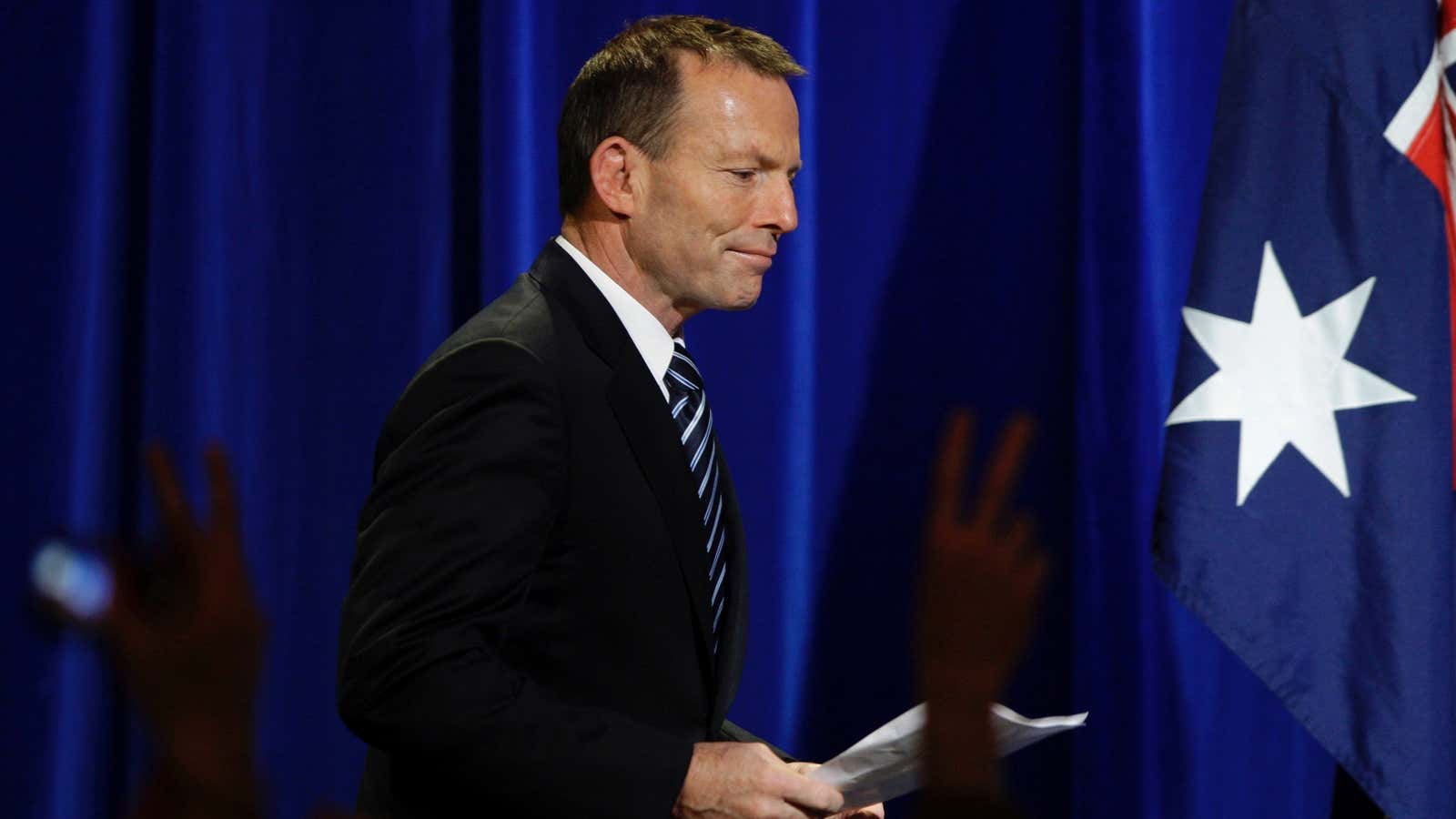In yet another example of the decision-making gymnastics he is becoming renowned for, Australia’s prime minister, Tony Abbott, today (Sept. 9) announced that his nation has agreed to accept an additional 12,000 Syrian and Iraqi refugees.
The move is a complete backflip for Abbott, who as recently as Sunday (Sept. 6) had been insisting that Australia would not increase its overall humanitarian refugee quota for the year. He had justified his stance on the basis that Australia is already “generous” with its refugee intake, quoting figures from the United Nations High Commissioner for Refugees. Those numbers, he said, show that Australia is a leading nation for the permanent resettlement of refugees.
“We are a country which, on a per capita basis, takes more refugees than any other,” Abbott said at a press conference on Sunday.
But that isn’t the case. Australia is the number one country per capita for, specifically, resettled refugees handled through the resettlement program of the UNHCR. (“Resettlement” is the process of transferring recognized refugees from the country where they initially sought refuge to a third country that has agreed to accept them.) But less than 1% of the world’s asylum seekers are given refuge through formal resettlement.
The Refugee Council of Australia had already laid out the facts in July, and it set the record straight again last month:
In the 2014 calendar year, UNHCR statistics show that Australia recognised 2,780 refugees through its asylum process and resettled 11,570 refugees from other countries, assisting 14,350 refugees in all.
Around the world, 3,262,960 people were recognised as refugees through asylum processes and 105,197 were resettled, a total of 3,368,157.
By this measure, Australia assisted 0.43% of the refugees recognised or resettled in 2014. It was ranked 22nd overall, 28th per capita and 46th relative to total GDP.
Lebanon’s recognition of 364,129 refugees was 120 times greater on a per capita basis than Australia’s total response.
Of the countries which typically grant permanent residency to recognised and resettled refugees, Sweden’s per capita response was 5.8 times greater than Australia’s, with 32,347 refugees recognised and 1,971 resettled.
Abbott’s decision came amid increasingly vocal calls from national opposition parties, state premiers, concerned citizens, and international newspaper editorials for Australia to increase its humanitarian intake of asylum seekers in the light of the European immigration crisis.
Despite figures that show refugees are the most entrepreneurial of all Australian migrants, Abbott’s government has historically taken a hard stance against asylum seekers, sometimes employing questionable tactics to prevent people from arriving by boat, and housing asylum seekers who do reach Australia illegally in offshore detention centers.
During today’s press conference, Abbott said the newly announced numbers will be a one-off increase over Australia’s 2015 humanitarian refugee intake of 13,750, and all the refugees will be granted permanent residency.
“Our focus for these new 12,000 permanent resettlement places will be those people most in need of permanent protection—women, children, and families from persecuted minorities who have sought temporary refuge in Jordan, Lebanon, and Turkey,” he said.
The Australian government will also be providing an additional AUD$44 million (US$31 million) in aid to the UN refugee agency, and will join US-led airstrikes against the Islamic State in Syria “within the week.”
